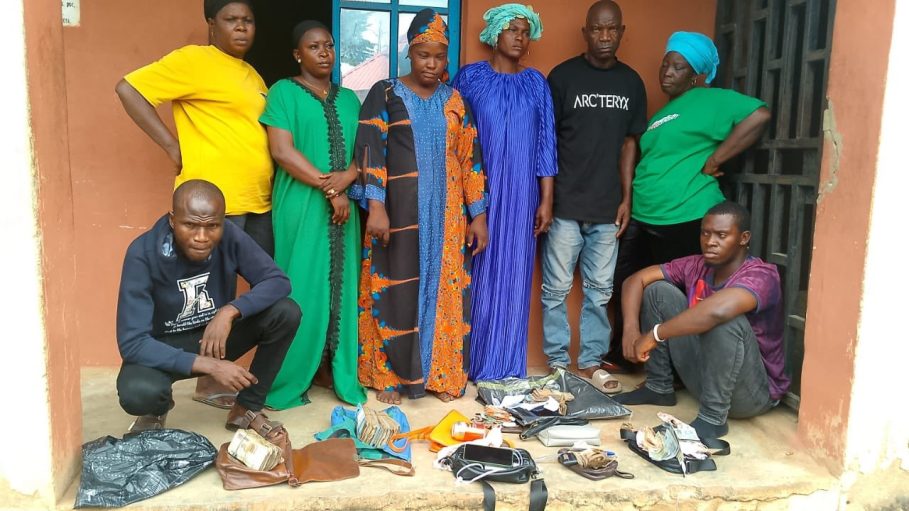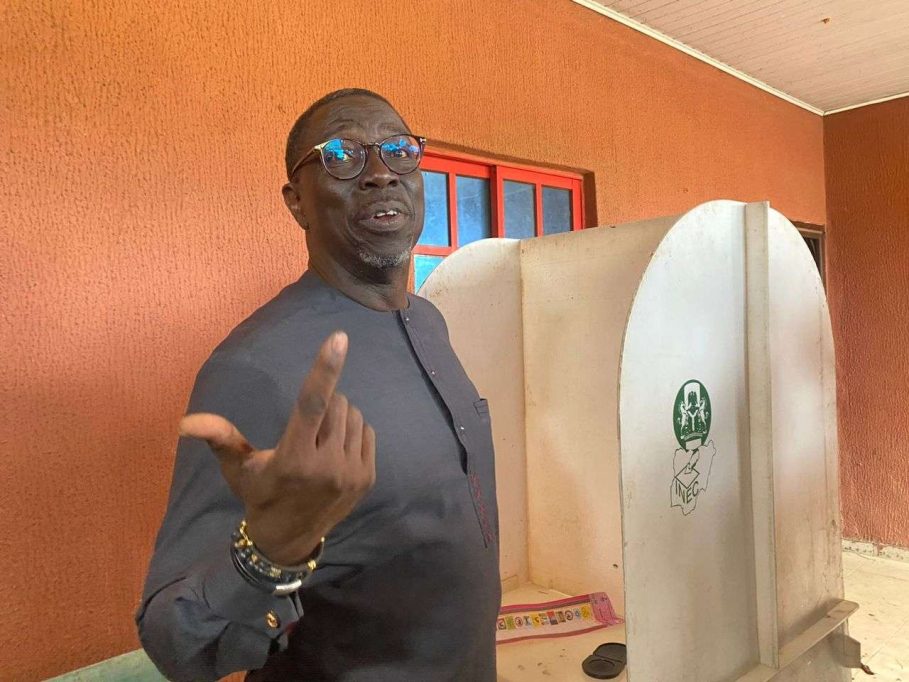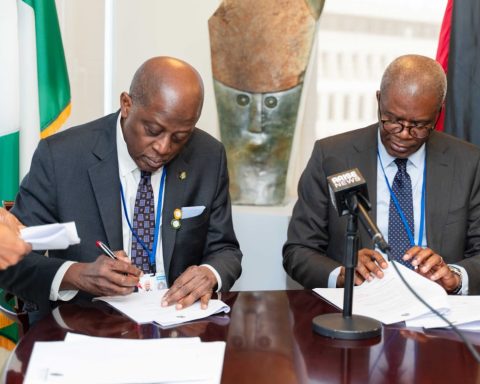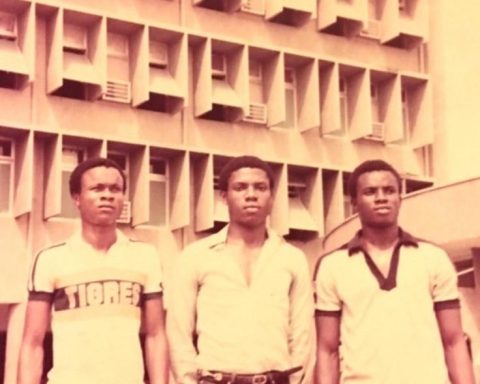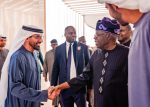Today marks one year since Olayemi Cardoso took office as the Governor of the Central Bank of Nigeria (CBN), a tenure that has raised eyebrows and left many questioning the direction of Nigeria’s economic policies. While any new governor faces challenges, Cardoso’s leadership has sparked concern among economists, business leaders, and ordinary Nigerians alike, as the Naira continues its downward spiral.
Being one of the earliest to be picked and allotted a highly juicy and strategic economic beat amongst the Bola Ahmed Tinubu Lagos ‘BOYS’, this CBN governor will go down in history as the first governor of Central Bank of Nigeria under whose watch the Naira virtually became one of the most worthless currencies of the world in the contemporary times.
Join our WhatsApp ChannelThe pressing question is whether the continuous devaluation of the Naira is a consequence of inexperience or a deliberate agenda aligned with the interests of the International Monetary Fund (IMF) and the World Bank. Many experts argue that the policies being implemented under Olayemi Cardoso’s leadership serve the interests of these international financial institutions rather than the economic well-being of ordinary Nigerians. This perception raises serious concerns about the direction of Nigeria’s monetary policy and its implications for the future.
Since Cardoso’s appointment, the devaluation of the Naira has been alarming. Initially valued at approximately 460 Naira to 1 US dollar, the currency has since plummeted, trading at over 1,600 Naira to the dollar. Such rapid devaluation significantly impacts the purchasing power of everyday Nigerians, leading to increased inflation and a rising cost of living. The reality is that while Cardoso has enacted a series of reforms aimed at economic stabilization, these measures often seem to prioritise international mandates over local needs.
Many experts believe that Cardoso’s policies reflect a lack of understanding of Nigeria’s unique economic landscape. Unlike central banks in countries facing inflation, which typically engage in creative problem-solving to protect their currency and citizens, the CBN under Cardoso has adopted a one-size-fits-all approach. For instance, in countries like Brazil and India, central banks have employed unconventional strategies during inflationary periods. Brazil’s Central Bank has successfully utilized interest rate adjustments and direct intervention in currency markets to stabilize the real without sending its population into poverty. Similarly, India’s Reserve Bank has integrated a more flexible exchange rate policy, allowing for a more measured response to inflation while protecting the livelihoods of its citizens.
READ ALSO: CBN To Hold 297th MPC Meeting Next Week
In contrast, Cardoso’s methods have led to a series of harsh monetary policies that disproportionately affect the most vulnerable. The aggressive tightening of monetary policy has included steep interest rate hikes, which, while theoretically designed to reduce inflation, have also discouraged borrowing and investment. In July 2024, the Monetary Policy Rate (MPR) was increased to 26.75 per cent—an alarming figure that exacerbates the cost of loans and further stifles economic growth. These decisions seem ill-fitted to Nigeria’s realities, where small businesses and entrepreneurs often struggle to secure funding.
The Governor’s insistence on a market-driven exchange rate regime has led to the erosion of the Naira’s value, creating a hostile environment for local businesses that cannot compete with imported goods. The rapid devaluation has resulted in an increase in import costs, ultimately leading to higher prices for consumers. While Cardoso’s office claims that these policies aim to attract foreign investment, the reality is that they push many local businesses to the brink of collapse. The question arises: are Cardoso and his administration prioritizing foreign investment over the livelihoods of millions of Nigerians?
Additionally, the CBN’s efforts to control inflation have come at the expense of the average Nigerian’s quality of life. The Consumer Price Index (CPI) remains stubbornly high, and while Cardoso’s tenure has seen a slight easing from 33.40 percent to 32.15 percent, the underlying issues remain unaddressed. The removal of subsidies, combined with the CBN’s rigid monetary policies, has left many households struggling to meet basic needs. A country that fails to protect its citizens from inflation prioritises abstract economic theories over human welfare.
Many critics argue that Cardoso’s policies are not only detrimental but are also indicative of a broader agenda that appears to align with international financial institutions. The IMF and World Bank have long pushed for market liberalization and austerity measures, often without regard for the unique socioeconomic conditions within Nigeria. Cardoso’s apparent acquiescence to these pressures raises suspicions about the motivations behind his policies. Is there a hidden agenda aimed at further integrating Nigeria into the global financial system, even if it comes at the expense of the Nigerian populace?
The failure to stabilize the Naira has far-reaching implications for Nigeria’s economy and social fabric. With inflation hovering at crisis levels and the cost of basic goods skyrocketing, many Nigerians are left to grapple with a grim reality. As purchasing power diminishes, so does the quality of life for countless families. It is heartbreaking to witness the struggles of hardworking Nigerians, many of whom are losing jobs and facing dire economic hardships because of policies that seem out of touch with their realities.
As we observe Cardoso’s tenure, it is crucial to recognize that economic leadership should not solely focus on fulfilling external obligations. The role of the CBN Governor is to prioritise the interests of the Nigerian people, ensuring that economic policies serve to protect the value of the Naira while fostering an environment conducive to growth. Unfortunately, Cardoso’s approach has been anything but protective.
Moreover, the growing sentiment among Nigerians reflects a desperate need for change. Many citizens express frustration with the lack of accountability and transparency in Cardoso’s administration. This year has seen significant pushback from economists and financial analysts who argue that the current CBN policies are not only ineffective but are actively harmful to the nation’s economic stability. The Nigerian populace must raise their voices and demand a shift in leadership—a leadership that prioritizes national interests over international mandates.
It is essential to question whether Cardoso’s inexperience contributes to the mismanagement of Nigeria’s economy. While it is not uncommon for leaders to encounter obstacles in their first year, the magnitude of the Naira’s devaluation under his watch cannot be overlooked. Each day that passes with Cardoso at the helm of the CBN is another day of economic distress for Nigerians. The pressing question remains: how long can the country endure these misguided policies before irreversible damage occurs?
To chart a new course, Nigeria must revisit the strategies that have proven successful in other nations. Collaborative dialogue among policymakers, economists, and stakeholders could lead to innovative approaches to address the currency crisis. The adoption of a more flexible and adaptive monetary policy, one that considers the local economic environment, could lay the groundwork for revitalizing the Naira and promoting sustainable growth.
Furthermore, it is vital to strengthen financial regulations that protect local businesses from the pressures of international competition while also addressing inflation. Promoting policies that encourage local production and investment would be a far more beneficial approach than continuing down a path that appears to cater to foreign interests.
As we reflect on the past year, it is increasingly clear that Cardoso’s tenure has brought significant challenges to the Nigerian economy. The continued devaluation of the Naira and the rising cost of living crisis that threatens the very fabric of society, underscore the urgent need for change in leadership at the CBN. Families are struggling to make ends meet, businesses are closing their doors, and the youth are losing hope for a brighter future. Nigerians deserve a governor who prioritizes their welfare and implements policies that reflect an understanding of the complexities of the national economy.
Nigerians must speak out against the policies that are detrimental to the economy and call for a leadership that prioritises the interests of the local populace over foreign agendas. The CBN, under Cardoso, has not only failed to uphold its mandate but has actively contributed to the economic decline that many are now forced to endure.
It is crucial for stakeholders, including civil society, economic experts, and the general populace, to unite in demanding a re-evaluation of the current economic policies. We must advocate a monetary policy that protects the Naira and fosters an environment conducive to local business growth.
READ ALSO: Naira Crashes Against Dollar As Official Exchange Rate Rises To N1,656
Additionally, it may be time for the government to reconsider Cardoso’s position as CBN Governor. His one-year tenure has proven to be a significant setback for Nigeria’s economic system, and it is evident that his approach does not align with the urgent needs of the Nigerian economy. Leadership change may be necessary to bring fresh perspectives and a renewed commitment to stabilizing the Naira and enhancing the economic landscape.
In conclusion, the call to action is clear: it is time for Nigerians to demand accountability and seek leaders who are committed to their interests. The current trajectory under Cardoso cannot continue unchecked, as the economic landscape grows increasingly dire. If Cardoso’s administration is unable or unwilling to pivot toward policies that safeguard the Naira’s value and protect the livelihoods of citizens, then it is incumbent upon Nigerians to voice their dissent and advocate leadership that is truly representative of their needs. Only then can Nigeria hope to emerge from this economic malaise and pave the way for a more stable and prosperous future.
Emmanuel Onwubiko is head of the Human Rights Writers Association of Nigeria and was National Commissioner of the National Human Rights Commission Of Nigeria.





